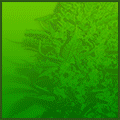We Update Daily!
 Custom Search Custom Search
Chris S. Kenoyer. Owner
MMJ Patient, Medical Activist,
Online Patients Advocate,
Online MMJ News Journalist
My Medical Bio
Follow Us Now On Twitter
@MedicalMMJMan
Or Follow Us Now
On Facebook
Email Us Here
olpwebs@yahoo.com
Or Email Us Securely Here
MedicalMMJMan@countermail.com
NEW 100% Encrypted Email Server
OLP’s Free MMJ News EList
Get The Latest In MMJ News
Press Contact Info
Is CBD? A Possible Cure For
Breast Cancer..? And All The Other
Many Forms & Types Of Cancer..?
Learn More About CBD Here
***************************
Advertise Here On OnlinePot
Rates As Low As $50 a Year
24/7 – 365 Days A Year Of Sales!
***********************************
Website Navigational Links
Main Start Page 2
**************************
Latest Marijuana News Reports
*********************************
Parody’s Cartoons US
Government Grown Pot,
Term Papers, School
Reports, & Thesis’s On
Marijuana & Cannabis
*********************************
Amsterdam A to Z
********************************
Canadian Marijuana Websites
*******************************
Church’s & Pot Cannabis
*****************************
Co-Ops, Clinics, Dispensary’s
*****************************
Marijuana Doctors & Clinics
****************************
Pot Cooking Recipes
****************************
Drug Testing A To Z
***************************
Pot Games
****************************
Pot Songs Video’s
****************************
100’s Of Grow Guides
***************************
Hash A- Z
***************************
Cannabis Legal Info, Drug
Lawyers, State, Federal Laws,
State & Supreme Court Rulings
**********************
POW’s Of The MMJ War!
*****************************
Other Marijuana Websites
Reciprocal Link Exchange
****************************
Medical Marijuana Studies,
Research Report’s, Medical
Cannabis Clinic Study’s
****************************
Parody’s & Cartoons
When We All Need A Good Laugh!
****************************
Avoiding Online MOM Scammers
Newly Re-Updated Info!
*****************************
The Politics Of Contraband
Medical Marijuana In The Mail?
******************************
The Hall Of Shame Section
The Online MOM Scammers
*****************************
Online MOM Providers Ads
****************************
Politicians & Voters Rights
****************************
Medical Marijuana, Strains
****************************
The OG Marijuana Strain Guide
****************************
800+ FAQ Growing Questions
****************************
Patients Spiritual Guidance,
Free Online Crisis Help Center
****************************
Online Marijuana Seed Banks
****************************
Maximum Security Section
Just Updated!
*****************************
Traveling Tips, Guides, B & B’s
****************************
Vaporizers A To Z
*****************************
Online Pot Video’s & Movies
**********************************************
Please Visit Both Of Our Sister Websites!
Maine Patients Coalition.org
The Reefer Madness Teaching Museum.org
Listen Right Here Online!
To Original 1930-1950’s
Reefer Madness Propaganda
Radio Shows And Programs
Before TV There Were
“Radio Stars”



*********************************
Legal Disclaimer
Guest Book
Translate Text or Web Page Go To:
Language Tools Google Translations
Article Submissions & News
Reports Are Always Gladly
Accepted Here.

No part of this site maybe used or
reproduced in whole or in part
without the written consent of the
Copyright Owner
www.onlinepot.org
OLP ENTERPRISES L3C
1999-2014 Copyright
© All rights reserved
OnlinePot assumes no legal liability for any products, or information or
news posted, services offered, Or
any contests or give away’s offered.
|
|
MARIJUANA AND IMMUNE SYSTEM
Category: Neurochemistry
Term Paper Code: 299
Return Back To Main Medical Reports Page
Introduction
Marijuana has been dated back to 5,000 years in an ancient Chinese book. This psychoactive drug belongs to a plant, genus named Cannabis, and through its preparation of leaves, buds, and stems from Cannabis is what is known as “marijuana”. Cannabis is found all over the world. Marijuana is Schedule I controlled substance in US since it has a psychedelic-like altered state of consciousness and euphoria, and furthermore it produces addiction and dependence.
In contrast, marijuana has many medicinal properties including “antiflammatory, appetite stimulant, muscle relaxant, anticonvulsant, and many other properties (Presti lec). As a matter of fact, marijuana contains over 426 chemical entities and more than 60 are of the cannabinoid class that includes cannabidiol (CBD), cannabinol (CBN), and delta-9, tetrahydocannabinol (THC) (Presti lec).
Marijuana cannabinoids are considered to be immunomodulators that have the ability to either increase or decrease immune function (Klein 102). In fact, “studies suggest that cannabinoids modulate the function of T and B lymphocytes as well as NK cells and macrophages (Klein 102).
Thus, cannbinoids have the immunomodulatory ability to enhance the disease process; therefore, recreational use of marijuana increases susceptibility of humans to infectious disease. For example, younger teenagers who have abuse this drug have been reported to have increased incidence of infection (Srivastava 451).
Evidently the major psychoactive component in marijuana extracts is THC which “produce a multiplicity of effects in humans including alterations in mood, perception, cognition, and memory…”(Cabral 116). THC has profound immunosuppressive effects on the immune function since it decreases host resistance to bacterial, protozoan, and viral infection. “Macrophages, T lymphocytes, and natural killer cells appear to be major targets of immunosuppressive effects of THC”(Cabral 116).
“Cumulative reports indicate that THC alters resistance to infection in vitro and in a variety of experimental animals support the hypothesis that a similar effect occurs in humans”(Cabral 116). THC is highly liquid soluble at high concentrations which alters membrane function, resulting in alterations in immune cell (Srivastava 179). “Thus, THC affected cytokine production, particularly of chemokines and IL-10, in human T, B, NK and myeloid cells. These alterations may contribute to defective immune function in marijuana users and possibly alter response to infections, including retroviruses, such as HIV”(Srivastava 451). Apparently, both psychotropic (THC) and nonpsychotropic (CBD) cannabinoids have widespread, specific effects on chemokine/cytokine expression by pure populations of human T cells, B cells, NK cells, and macrophages (Srivastava 184). Clearly speaking, “these effects, while being of potential benefit in some autoimmune/inflammatory diseases, may worsen HIV infection, disease progression, tumorigenesis, metastases, and exacerbate allergic inflammation in the lung”(Srivastava 184).
T and B Lymphocytes
All animals including humans, monkeys, and mice have lymphocytes. Lymphocytes are critical to the development of resistance to disease. The two important lymphocytes in the body of all animals are T lymphocytes (T cells) and B lymphocytes (B cells) which are both derived from animals’ bone marrow. T cells are stored and matured in the thymus of animals, and circulate in the blood.
In addition, T cells protect the body from viral infection. In contrast, B cells are stored and matured in the spleen, and are also distributed throughout the body in the blood. Furthermore, B cells are responsible for the humoral response to infection since they secrete highly specific antibody that binds to foreign substance, antigen, for destruction.
THC and other cannabinoids suppress T cell proliferation, but on the other hand, increase B cells proliferation. Massi and other researchers had done studies on the “effect of acute ( 1 hour) or chronic exposure (7 and 14 days) to THC on immune parameters in male Swiss mice”(Massi 60). In these studies, they found no changes in the number of T cells and B cells after the acute and 7 day treatments to THC, but “at 14 days there was a 20 0ecrease in the number of T lymphocytes, mirrored by a 26 0ncrease of B lymphocytes”(Massi 60).
In addition, ” in vivo exposure to THC has been shown to cause a decrease in T lymphocyte-dependent cell-mediated immunity herpes viruses”(Cabral 120). In this in vivo experiment, ” mice were administered 200mg THC intraperitoneally on two consecutive days exhibited decreased resistance to infection with herpes simplex virus type 2 (HSV2)”(Cabral 117).
Obviously, this experiment indicated that the “THC-induced effect on decreasing resistance to HSV2 infection was specific to the drug implicated cellular elements of the immune systems as targets, and implied the involvement of a cannabinoid receptor.
Evidently, THC primarily affects the function of T lymphocytes (Klein 106). “CD8 T cells can mature and differentiate into cytotoxic T lymphocytes (CTL) capable of lysing and destroying potentially harmful cellular elements in the body….” (Klein 107). Moreover, studies have examined that “THC suppresses the CTL lytic process at a stage beyond target cell binding”(Klein 107).
Macrophages
Macrophages play a central role in immunity by defending body against invading microbes with their functions of phagocytosis and antigen presentation (Klein 107) Macrophages phagocytose non-specific and specific antibody-antigen complex.
Nevertheless, macrophages present Antigen to T helper cells for examination. ” It was observed that TCH at 10nM suppressed antigen presentation of cytochrome antigen”(Klein 109). Therefore, “the authors concluded that these were selective effects on cell function at low drug dose based on the involvement of drug receptors rather than generalized toxic effect of the drug” (Klein 109).
“In addition, a major functional property of macrophages is their capacity to restrict, in an interferon-independent fashion, the replication of viruses not only within the macrophage, but also within viral-permissive cells to which they attach” (Cabral 119). Studies demonstrated that pretreatment of macrophages with THC “resulted in dose-dependent inhibition in their ability to prevent virus replication in target HSV2-infected green monkey kidney”(Cabral 119).
In addition, “THC has been shown to enhance in vitro the growth of intracellular L. pneumophila, an opportunistic pathogen which infects macrophages in vivo and in vitro, and to inhibit macrophage amoebicidal activity”(Cabral 119). For example, THC exposure was capable of overcoming macrophages’ abilities “to exert amoebicidal activity against Naegleari fowleri, a free-living amoebae which can cause a fatal disease in humans known as Primary Amoebic Meningoencephalitis”(Cabral 119).
Cannabinoids significantly affect the host response of macrophages to microbes (Klein 107). Macrophages can effectively kill microbes by oxidative burst activated within the cell following phagocytosis (Klein 107). “However phagocytosis of bacteria was not significantly affected by marijuana smoke but was by tobacco smoke”(Klein 107) Studies showed that “tobacco smoking rather than marijuana smoking resulted in lung changes and suppression of macrophage superoxide production” (Klein 107). In contrast, “alveolar macrophages (AMs) recovered from marijuana smokers were deficient in their ability to phagocytose Staphylococcus aureus” (Baldwin 1606).
“Alveolar macrophages are one of the central mediators of lung immunity and, because of their location within the alveolus, are exposed to high concentrations of these drugs”(Baldwin 1670). As a matter of fact, “alveolar macrophages are the predominant lung leukocyte and act as the lung’s resident phagocytic defense against both bacteria and fungi”(Baldwin 1610). Also, “alveolar macrophages secrete a variety of cytokines capable of regulating their own activity, as well as the activity of other immune effector cells”(Baldwin 1610). The studies done by Baldwin and other researchers on habitual marijuana smokers had found that marijuana “significantly impairs the antibacterial and tumoricidal activities of human alveolar macrophages, as well as, the their ability to produce inflammatory cytokines”(Baldwin 1611).
Other studies with animal cells and animals models done by Baldwin and his team of researchers demonstrated that “both THC and marijuana smoke can reduce the antibacterial activity of alveolar macrophages”(Baldwin 1611). They observed that in the lungs of habitual marijuana smokers, there were “two distinct deficiencies in their response to S. aureus: reduced phagocytosis and reduced bacterial killing”(Baldwin 1611). Moreover, they also observed “alveolar macrophages from marijuana smokers were suppressed in their ability to kill both bacteria and human tumor cells”(Baldwin 1611).
The result is that “NO is one of the mechanisms by which alveolar macrophages kill their targets”(Baldwin 1611). Therefore, “a deficiency in No synthesis may contribute to the diminished antibacterial activity of alveolar macrophages in marijuana smokers”(Baldwin 1611). Indeed, recent studies have demonstrated that “THC directly inhibits the expression of cytokine-induced NO in macrophages”(Baldwin 1611). However, it was observed that “THC reduced both cytokine-mediated and NO-dependent killing, depending on the activating stimuli and the nature of the tumor target” (Baldwin 1611).
“The inability of alveolar macrophages from marijuana smokers to produce high levels of these cytokines could therefore play a significant role in their ability to lyse tumor cells” (Baldwin 1611). For example, the production of cytokines, TGF- , is “one of the primary mechanisms by which alveolar macrophages suppress pulmonary inflammation and immune activation”(Baldwin 1611). In fact, “alveolar macrophages from marijuana smokers are unable to secrete high levels of inflammatory cytokines, while they retain their ability to secrete the inhibitory cytokine TGF- has important ramifications for the effects of marijuana on pulmonary host defenses”(Baldwin 1611).
Moreover, “eosinophils are cells with key roles in allergic inflammatory diseases, such, as asthma”(Strivastava 184). Therefore, “direct exposure of high concentrations of cannabinoids to lung eosinophils, as occurs with illicit use of smoked marijuana, could significantly worsen preexisting asthma/allergic pulmonary disease”(Strivastava 184). In conclusion, marijuana use had broad ranges of effects on alveolar macrophages including “suppression of phagocytosis, inhibition of bacterial and tumor killing, and a reduction in their ability to produce inflammatory cytokines”(Baldwin 1611).
Macrophages also have important immunomodulating potential because of the significant role eicosanoids play in macrophage-mediated resistance to infection and cytokine production (Klein 109). Eicosanoids are enzymes secreted by macrophages; however, “cannabinoid suppresses this protein production as well as changing the cell’s morphological structure”(Klein 107). The mechanism of cannabinoid effect on modulating the production of eicosanoids, which is most effective at drug concentrations around 30um is related to cannabinoid receptor function as reported (Klein 109).
Natural killer (NK) cells
Natural killer (NK) cells are important in “host defense against tumors and microbes”(Klein 106). NK cells can be stimulated by an interferon; for example, “NK cells become activated to proliferate and become a more potent killer cells when stimulated by lymphokine IL-2. Thus, NK cells are referred to as lymphokine activated killer cells or LAK cells, which are important in host defense (Klein 107). Suppression of NK activity is concentration dependent in THC concentration above 10 um to be effective (Klein 107). THC in concentration range of 10-32um suppressed proliferation of NK and LAK cell activity. “Studies showed that THC treatment suppressed IL-2 activity by disrupting the IL-2 receptor system on the cells”(Klein 107). However, with the studies of the mice with chronic exposure (14 days) to THC, IL-2 was the same as the controls unlike the 7-days treatment that showed a strong reductions of IL-2(Massi 64). Consequently, “in vivo THC may either reduce the autocrine production of IL-2 or suppress the number and signal transducing capabilities of the IL-2R receptor system”(Massi 65).
Conclusions
Marijuana has the potential to decrease the ability for the immune system to function properly. Apparently, “THC alters host defenses to bacterial, protozoan, and viral infection in experimental animals and marijuana smokers”(Cabral 121). “This decrease in host resistance may be consequent of the immunosuppressive action of this cannabinoid on the functionality of macrophages, T lymphocytes, and NK cells” (Cabral 121). “The documented evidence that THC alters anti-microbial activity both in vivo and in vitro, indicates that marijuana use presents a potential risk of decreased resistance to infections in humans. Thus, “epidemiological data suggest that HIV-positive marijuana smokers progress to symptomatic AIDS more rapidly than those who do not smoke marijuana…” (Cabral 121).
THC suppresses proliferation T lymphocytes while increasing the proliferation B lymphocytes. These studies were demonstrated in mice that were exposed to THC for 14 days and resulted “in 20 0ecrease in the number of T lymphocytes, mirrored by a 26 0ncrease of B lymphocytes”(Massi 60). Also, THC primarily affects the function of T lymphocytes (Klein 103). THC suppresses Cytotoxic T lymphoctyes (CTL) from lysing within infected cells.
THC also affects macrophages in their functions of phagocytosis and antigen presentation to invading microbes. THC suppresses these two functions against bacteria and viruses. Treatment of macrophages with THC “resulted in dose-dependent inhibition in their ability to prevent virus replication in target HSV2-infected green monkey kidney”(Cabral 119). In addition, studies in habitual marijuana smokers had found that marijuana “significantly impairs the antibacterial and tumoricidal activities of human alveolar macrophages, as well as, the their ability to produce inflammatory cytokines”(Baldwin 1611). Marijuana use had broad ranges of effects on alveolar macrophages including “suppression of phagocytosis, inhibition of bacterial and tumor killing, and a reduction in their ability to produce inflammatory cytokines”(Baldwin 1611).
Natural killers serve as a host defense against tumors and microbes. NK cells, too, are also suppressed by exposure to THC. Thus, suppression of NK cells is concentration dependent in THC concentration above 10 um to be effective (Klein 107).
Return Back To Main Medical Reports Page |



 Button Ads!
Button Ads! 




